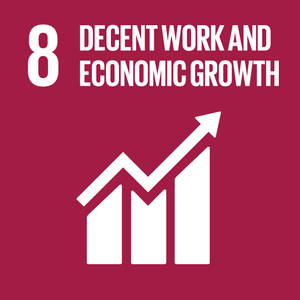What is a forest policy?
A forest policy – sometimes referred to as a forest strategy – is a long-term vision for the forest sector comprising a set of aspirations, goals and objectives and an outline of a course of action for pursuing those. FAO defines a “forest policy” as:
“a negotiated agreement between government and stakeholders (i.e. all those who depend on or benefit from forests or who decide on, control or regulate access to these resources) on the orientations and principles of actions they adopt, in harmony with national socioeconomic and environmental policies, to guide and determine decisions on the sustainable use and conservation of forest and tree resources for the benefit of society.”
Involvement in forest policy development can help forest managers, owners and individuals affected by forests to express their expectations from forests and contribute to the achievement of these expectations. Core issues addressed in forest policies may include the extent of forest resources (including goods and services); forest biological diversity; forest health and vitality; the productive functions of forest resources; and the legal, policy and institutional frameworks. Comprehensive forest policies address issues such as land tenure, land use, climate change, employment, community forestry, financing and investment, payments for environmental goods and services, wood consumption, international markets, and forest industry.
Why should countries have forest policies?
Why should countries have forest policies?
It is increasingly recognized that forests have multiple values that must be maintained or enhanced, and that diverse stakeholders have legitimate claims on forest benefits. Forest managers, therefore, face an increasingly complex challenge, as forest management shifts towards a more inclusive and cross-sectoral process requiring the involvement of diverse stakeholders and the balancing of their often-competing interests. Different stakeholders may prioritize different issues, such as the economic, social, cultural or environmental benefits they derive from forests; in some cases, national development priorities may overshadow the immediate needs of local people. Increasingly, developers of forest policies need to be aware of the impacts and dependencies of forests and forest management on other sectors, and vice versa. A forest policy can provide a framework for enabling sustainable forest management (SFM) that balances the economic, social and environmental goals of stakeholders and of society. Specifically, a forest policy:
- establishes a long-term vision that ensures the values of forests are protected, maintained and enhanced for present and future generations;
- provides a strategy for addressing emerging challenges such as climate change and for responding to new opportunities such as the “greening” of economies;
- helps reconcile the demands of different users and define the roles and functions of all actors in and outside the public forest sector, from forest managers to the public administration in charge of forests; and
- provides a framework for institutions, including laws and regulations. Forest policies provide direction, and legislation is usually considered an instrument for implementing a forest policy, establishing rights and responsibilities, and formalizing governance arrangements.
FAO estimated that the number countries elaborating formal forest policy statements increased by 15% in the period 2007–2015, demonstrating a global trend in developing forest policies.
Why do forest managers need to be involved in policy development?
Why do forest managers need to be involved in policy development?
Policies have impacts on management decisions. Although governments should take a lead role in the development of forest policies, the process should involve all concerned actors and take advantage of their knowledge, experience and perceptions. Today more than ever, stakeholders want forest policies to address broad socioeconomic concerns, such as tenure, access to forest resources, the equitable distribution of benefits, and local versus state-sanctioned rights; if ignored, such concerns can breed prolonged conflict. Moreover, forest managers are increasingly held accountable by society for the way in which they manage and use forest assets. The process of developing a forest policy, therefore, requires regular consultations among stakeholders with the aim of balancing divergent interests, identifying key issues and ensuring that the benefits derived from forests, and the costs, are distributed equitably. It is crucial that forest managers – who may be professional foresters or traditional managers – are involved in the development of forest policies for the following reasons, among others:
- Societies increasingly hold forest managers accountable for how they manage and use forest assets.
- Forest managers possess knowledge about forest users and uses that other stakeholders may not have. They can play a key role in policy development by sharing their day-to-day experiences in managing forests and by ensuring that policy priorities and objectives are technically viable.
- A forest policy defines general long-term goals that frame managerial decisions. A long-term goal to increase forest cover, for example, will require activities set out in management plans involving a specific number of hectares, the identification of suitable species, etc., and an associated budget. Involving managers in policy development will help ensure that goals are realistic and achievable.
- The involvement of forest managers in policy development, together with other stakeholders such as local people, local authorities, private interests and other sectors, can help in creating partnerships to implement the policy that is ultimately developed and in avoiding or managing conflicts over land use.
- The involvement of forest managers in policy development increases their responsibility for policy implementation and, where those managers are government employees, promotes government accountability.




